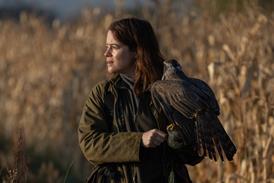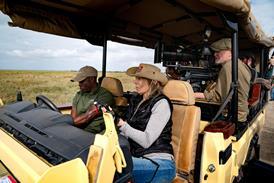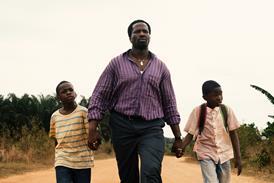- News
- Reviews
- Features
- Festivals
- Box Office
- Awards
 Claire Foy on learning how to handle goshawks in ‘H Is For Hawk’: “It became a profound thing”
Claire Foy on learning how to handle goshawks in ‘H Is For Hawk’: “It became a profound thing” Kathryn Bigelow on the inspiration behind nuclear-strike thriller ‘A House Of Dynamite’: “I was interested in discussing the unthinkable”
Kathryn Bigelow on the inspiration behind nuclear-strike thriller ‘A House Of Dynamite’: “I was interested in discussing the unthinkable” Sope Dirisu on celebrating Nigerian culture in ‘My Father’s Shadow’ and his upcoming projects
Sope Dirisu on celebrating Nigerian culture in ‘My Father’s Shadow’ and his upcoming projects
- Subscribe

Subscribe to Screen International
- Monthly print editions
- Awards season weeklies
- Stars of Tomorrow and exclusive supplements
- Over 16 years of archived content
- Global production
“Be very attentive when shooting with a child”: Czech director Beata Parkanová on ‘Tiny Lights’
By Laurence Boyce2024-07-03T06:03:00

Source: Karlovy Vary
Parkanová previously won the best director award at Karlovy Vary for her 2022 film Word.
SIGN IN if you have an account
Do you want to keep reading?
Register for free access to five articles a month

Subscribe today and unlock access to:
- Unlimited film & TV news, reviews and analysis on Screendaily.com
- All print and/or digital editions of Screen magazine
- Breaking news alerts sent straight to your inbox
- Digital festival and market dailies
- Weekly awards magazines
Access premium content Subscribe today
If you have an account you can SIGN IN now
Subscribe to Screen International
Screen International is the essential resource for the international film industry. Subscribe now for monthly editions, awards season weeklies, access to the Screen International archive and supplements including Stars of Tomorrow and World of Locations.
Find out moreSite powered by Webvision Cloud












